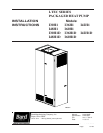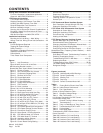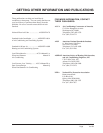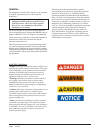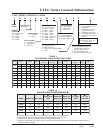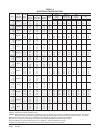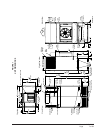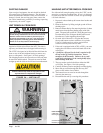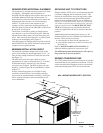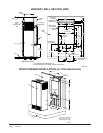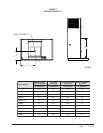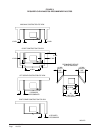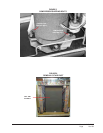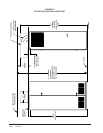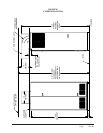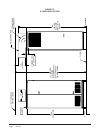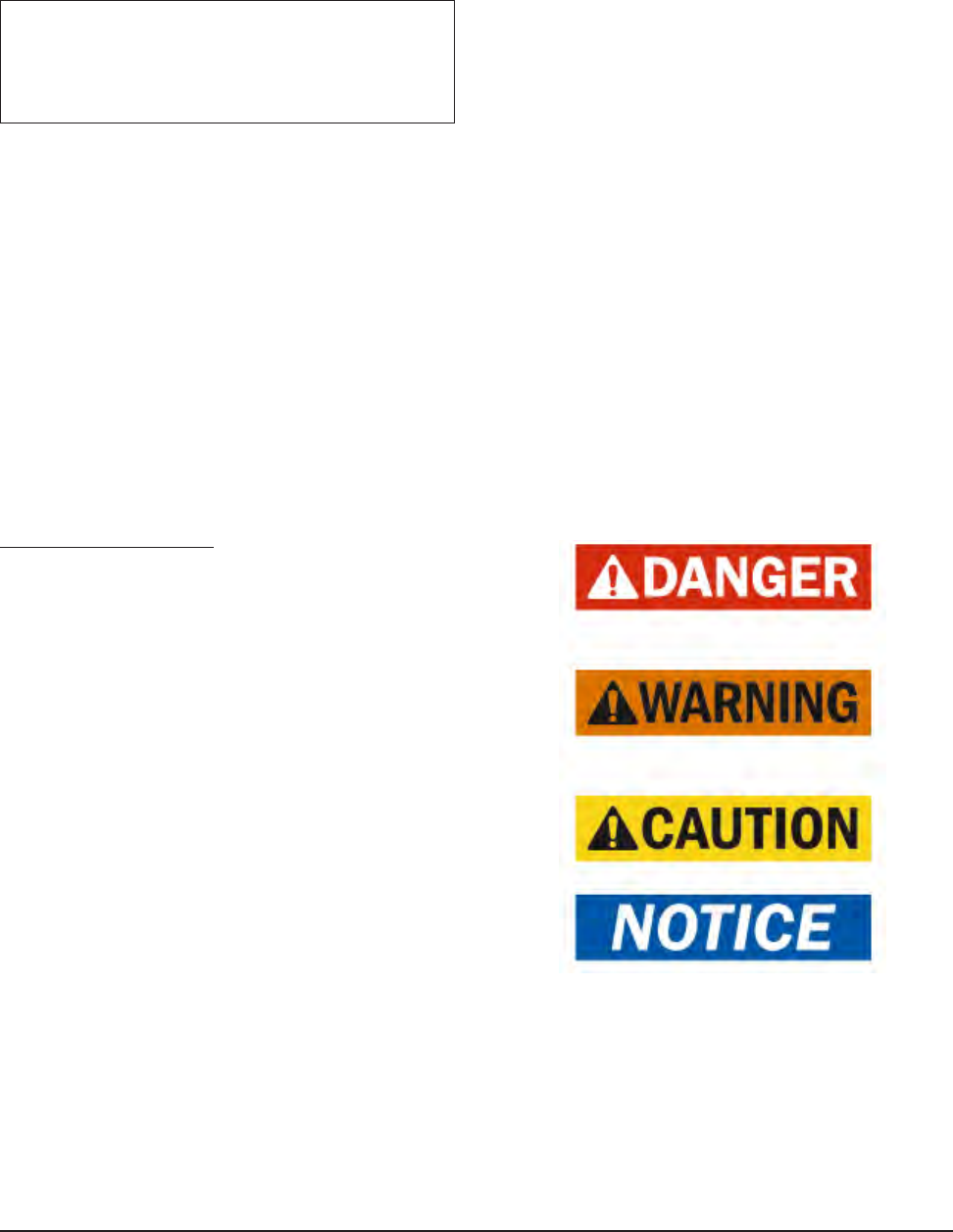
Manual 2100-549G
Page 4 of 59
GENERAL
The equipment covered in this manual is to be installed
by trained, experienced service and installation
technicians.
The I-TEC must be installed with the Bard
manufactured IWS wall sleeve and ILG louver
grille accessories. These are sold as separate
accessories. Any substitutions will void the
manufacturer’s warranty.
The unit is designed for use with or without ductwork.
For use without ductwork, Plenum Box IPBDF8-color (8"
height) or IPBDF12-color (12" height) is recommended.
These instructions explain the recommended method to
install the air cooled self-contained unit and the
electrical connections to it.
These instructions and any instructions packaged with
any separate equipment required to make up the entire
heating and air conditioning system should be carefully
read before beginning the installation. Note particularly
“Start Procedure” and any tags and/or labels attached to
the equipment.
While these instructions are intended as a general
recommended guide, they do not supersede any national
and/or local codes in any way. Authorities having
jurisdiction should be consulted before the installation is
made. See Page 3 for information on codes and standards.
Size of unit for a proposed installation should be based
on heat loss or heat gain calculation made according to
methods of Air Conditioning Contractors of America
(ACCA). The air duct should be installed in accordance
with the Standards of the National Fire Protection
Systems of Other Than Residence Type, NFPA No.
90A, and Residence Type Warm Air Heating and Air
Conditioning Systems, NFPA No. 90B. Where local
regulations are at a variance with instructions, installer
should adhere to local codes.
ANSI Z535.5 Definitions:
• Danger: Indicate[s] a hazardous situation which, if not
avoided, will result in death or serious injury. The signal
word “DANGER” is to be limited to the most extreme
situations. DANGER [signs] should not be used for
property damage hazards unless personal injury risk
appropriate to these levels is also involved.
• Warning: Indicate[s] a hazardous situation which, if
not avoided, could result in death or serious injury.
WARNING [signs] should not be used for property
damage hazards unless personal injury risk appropriate
to this level is also involved.
• Caution: Indicate[s] a hazardous situation which, if not
avoided, could result in minor or moderate injury.
CAUTION [signs] without a safety alert symbol may be
used to alert against unsafe practices that can result in
property damage only.
• Notice: [this header is] preferred to address practices
not related to personal injury. The safety alert symbol
shall not be used with this signal word. As an alternative
to “NOTICE” the word “CAUTION” without the safety
alert symbol may be used to indicate a message not
related to personal injury.



